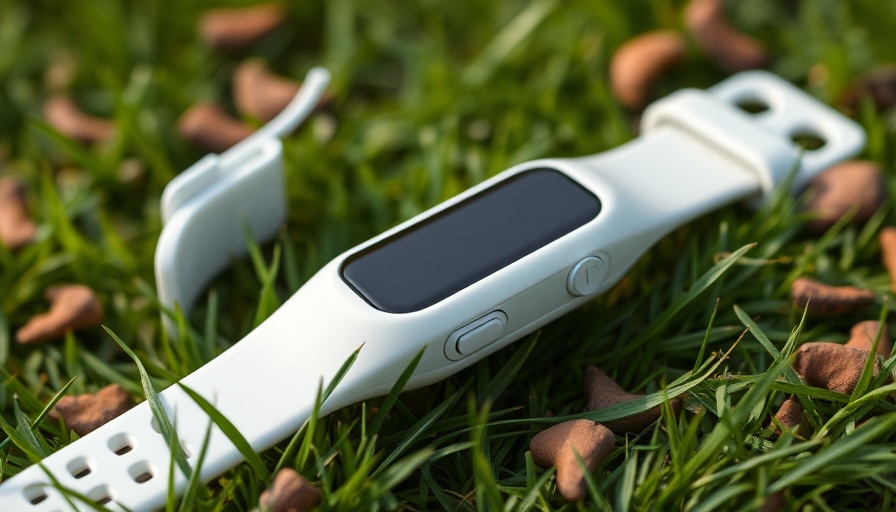
Enhancing Performance and Wellbeing with Fitness Trackers
In an era dominated by technology, fitness trackers have become essential tools for anyone looking to improve their health and performance. These devices allow users to monitor vital metrics such as heart rate, step counts, and even sleep quality—all from their wrist. However, the real challenge lies in how to leverage this data without losing sight of our intrinsic self-awareness.
The Intricacies of Measuring Health
Our ancestors relied on innate judgment to gauge their well-being, whereas today's fitness enthusiasts often depend on sophisticated gadgets. Although fitness trackers can provide valuable insights into our physical states, it's essential to critically assess the accuracy of these measurements. Evidence suggests that while metrics like heart rate and step counts tend to be quite reliable, others—like calories burned—can vary significantly among different brands and models. Understanding the limitations of the technology is vital for effective use.
The Pros and Cons of Data Tracking
Tracking data can offer numerous benefits, giving users more control over their fitness journeys. However, there's a paradox in information overload. Research indicates that even a small influx of additional data can impair decision-making. For instance, excessive numbers on a fitness tracker screen can lead to anxiety and confusion, detracting from healthy lifestyle choices. It's about finding an equilibrium—how much information do we need to make informed decisions without becoming overwhelmed?
The Importance of Mindfulness in Fitness
Mindfulness plays a crucial role in balancing the benefits of fitness trackers. Dr. Alex Hajduczok's research at Penn State revealed that using fitness trackers can enhance self-awareness among users by encouraging them to reflect on their habits. As people monitor their health, they may find opportunities to make small yet meaningful lifestyle changes. For instance, understanding sleep patterns might inspire earlier bedtimes, while tracking daily steps could motivate them to take the stairs instead of the lift.
Making the Most of Your Fitness Tracker
Being health-conscious also means knowing how to utilise your fitness tracker effectively. Here are several actionable tips:
Set Realistic Goals: Start with manageable targets based on your current fitness level. Gradually increase these as you progress.
Monitor Key Metrics: Focus on specific health indicators like weekly steps or sleep duration rather than being distracted by every data point available.
Review and Reflect: Regularly check your data to identify patterns; adjust your goals as your fitness level improves.
Stay Connected: Engage with social features of your tracker to find motivation from friends or participate in challenges.
Overcoming Misconceptions About Fitness Trackers
Many individuals perceive fitness trackers as mere gadgets, but they are much more than that. Far from being a source of stress or inaccuracy, when used wisely, these devices can facilitate a significant attitude shift towards health. They can improve how we measure our exertion and enhance our overall sense of wellbeing.
Future Predictions in Fitness Tracking
The fitness tracking landscape continues to evolve, with emerging technologies expected to integrate seamlessly into everyday life. As we look ahead, the rise of AI-driven insights and the capability to monitor stress responses through wearables could pave the way for more personalised health interventions.
The Emotional Connection to Wellbeing
Ultimately, it’s essential for health-conscious women to maintain a balanced relationship with their fitness trackers. Understanding oneself sometimes requires stepping back from the data to introspect and listen to your body without digitised interference. Melissa, who recently embraced fitness tracking, felt empowered by the improvements in her workout regimen but noted the importance of ensuring she wasn’t letting numbers dictate her self-worth.
Taking Control of Your Health Journey
Fitness trackers can undoubtedly serve as powerful allies in our health journeys. They help translate subjective feelings of wellbeing into measurable data, providing an opportunity for personal growth and improvement. However, the key lies in using this technology wisely—maintaining awareness of both the data provided and our personal needs.
As you navigate your wellness journey, remember to honour your own instincts and emotions. Happiness in health often comes not just from metrics but from a harmonious balance with yourself. Equip yourself with a fitness tracker that fits your lifestyle, but also ensure that it complements, rather than controls, your personal health journey.
Engaging with this technology can empower you to take charge of your health in a meaningful way, but never forget: numbers aren’t everything. Intuitive listening to your body remains paramount.
 Add Row
Add Row 

 Add Element
Add Element 


 Add Row
Add Row 
 Add
Add 
Write A Comment